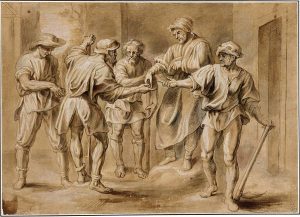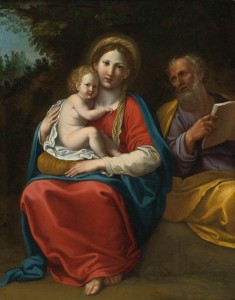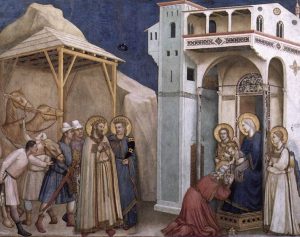Collegium Sanctorum Angelorum announces the establishment of a new college to serve traditional Catholics and its supporting subsidiary, HEAVENLY ROAST COFFEE.
Collegium Sanctorum Angelorum (College of the Holy Angels) will be a residential, four-year college that will provide a liberal arts education (A.A. and B.A.) that is faithful to the intellectual, moral, spiritual, and liturgical traditions of the Roman Catholic Church, and a formation in Catholic living, called ore et labore, both at affordable rates (under $13,500) for tuition, room and board.
The college will open in fall of 2019, and it will also provide a formation in Catholic living through regular prayer (including Mass and parts of the Divine Office), opportunities for every student to work in support of the mission of the college, co-curricular activities that will support intellectual inquiry, spiritual formation, and moral discernment, and a faculty/staff that is committed to providing exemplary models of Catholic living.
The college is as concerned about formation as it is about information. Thus, the residential aspect of the college is critical, and it will constitute a program of prayer, centered on the traditional Latin Mass and parts of the Divine Office, work, and study. The formation will be essentially contemplative in nature, to which the traditional forms of prayer are more naturally aligned. (This will also serve the needs of traditional Catholics, for whom there is currently no four-year college devoted to such a traditionally oriented formation.)
The college will keep its costs affordable by limiting the size and scope of the program, by supporting the program with auxiliary income-producing enterprises – one of which is HEAVENLY ROAST COFFEE – and by using technology to achieve efficiencies wherever possible.
Through a strict adherence to the tenets of Ex corde ecclesiae, and a by thorough screening of faculty, staff and students, the college will provide an education that is faithful to the magisterium of the Church. Every member of the faculty and staff at the college will be a practicing Catholic in full communion with the Holy Catholic Church, will be fully supportive of the purposes of the Collegium, and will sign the Collegium’s pledge of fidelity to the magisterium of the Catholic Church and its oath rejecting the philosophy of Modernism.
YOU CAN HELP IN 5 WAYS:
- Visit the Collegium’s website: www.collegiumsanctorumangelorum.org, sign up for our newsletters and announcements, and follow our blog.
- Join and like the Collegium’s Facebook Group: https://www.facebook.com/groups/1000345869993413/.
- Visit www.heavenlyroastcoffee.com, and sign up for our announcements and sales offerings, and buy your coffee from Heavenly Roast Coffee.
- Visit https://www.facebook.com/heavenlyroastcoffee and ‘like’ the page, and share it.
- Pray this prayer every day: Prayer to the Holy Angels
Bless the Lord, All you His Angels, You who are mighty in strength and do His will. Intercede for me at the throne of God, and by your unceasing watchfulness protect me in every danger of soul and body. Obtain for me the grace of final perseverance, so that after this life I may be admitted to your glorious company and may sing with you the praises of God for all eternity.
O all you holy Seraphim, Cherubim and Thrones; Dominions, Virtues and Powers; Principalities, Archangels and Angels; and especially you, my dear Guardian Angel, intercede for me and obtain for me the special favor of the success of the College of the Holy Angels.
(Our Father … 10x – one for each of the orders of angels and one for your guardian angel, that as they intercede for the Collegium, all things will be done according to the will of Our Father in heaven.)
Contact: edwardschaefer@collegiumsanctorumangelorum.org
 We see in liturgical history, the Church in France in the thirteenth century there is a change in how we live the Lex Orandi tradition with the singing of Vespers on the eve of Septuagesima Sunday, the 9th Sunday before Easter (the Byzantine Church hears the gospel of the Prodigal Son thus beginning their preparation for Great Lent). At this time we ought to notice the visual and auditory elements change: organ is silenced, the Alleluia is buried, violet is worn for priestly vesture. This verse appears:
We see in liturgical history, the Church in France in the thirteenth century there is a change in how we live the Lex Orandi tradition with the singing of Vespers on the eve of Septuagesima Sunday, the 9th Sunday before Easter (the Byzantine Church hears the gospel of the Prodigal Son thus beginning their preparation for Great Lent). At this time we ought to notice the visual and auditory elements change: organ is silenced, the Alleluia is buried, violet is worn for priestly vesture. This verse appears:

